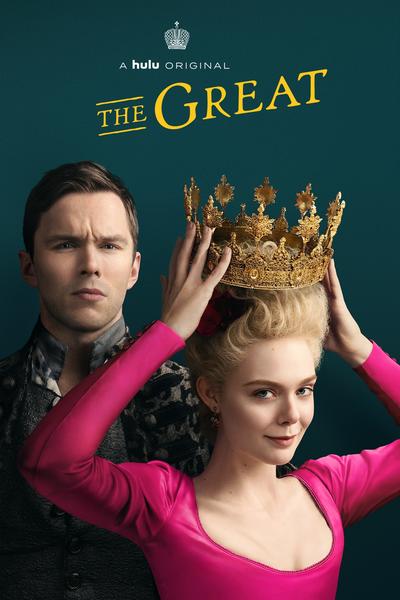
Ramy Youssef stars (and also occasionally writes and directs) in the show, playing Ramy Hassan, a first-generation Egyptian-American immigrant in New Jersey who is trying to reconcile his faith with being a millennial American. He lives with his parents, Maysa (Hiam Abbass, in a far cry from her sophisticated role in Succession and who should be winning a dozen awards for this portrayal of a Palestinian immigrant trying to get used to life in America), and Farouk (Amr Waked, who wonderfully embodies the fears, hopes, and frustrated ambition of all immigrants seeking a better life for their families), and his sister, Dena (May Calamawy, who speaks for all brown girls everywhere when she chafes at the restrictions placed on her while her brother gets to do as he pleases). My favorite moments in this show are when it is just a family comedy, with all these characters clashing across generational and gender lines, and struggling to figure out what exactly it is they are meant to be doing with their lives. But what makes this show truly special is that this is a Muslim family, with that Muslim identity meaning very different things to each family member.
Watching this show made me exceedingly nostalgic for my childhood in Bahrain. There’s a lot of Arabic being spoken (you had better be OK with subtitles), a soundtrack filled with bopping Arab tunes, and a lot of calls to prayer. For the first time, I got to see what goes on inside a mosque and what rituals accompany the daily prayers. Because it’s 2020, we also get to see the technological advances of modern Islam - for example, Ramy has an app on his phone that starts playing the call to prayer whenever it’s time. As you can imagine, this is often deployed to great comic effect, like when he’s in the middle of hooking up with a girl but then gets a reminder that Ramadan is about to begin and he won’t be able to have sex for the next thirty days. His friends are also varying kinds of Muslims, often alternating between strict adherence and then deciding to just ask for forgiveness later. And I would be remiss if I didn't mention Steve (played by Ramy Youssef's real-life childhood friend, Steve Way), who has muscular dystrophy and is severely disabled in a wheelchair, and yet might be the filthiest and most outgoing friend Ramy has. This show is about Muslim representation, but in this character, it also goes a long way to representing those with disabilities and how their lives aren't defined by their illness.
The focus of the series is on Ramy and his search for meaning. I started out really loving this character and empathizing with him, but by the end of the second season, he does some deeply terrible things, and now I just want to see if he ever digs himself out of this hole. To put it bluntly, the boy is a fuck-up: not just by immigrant standards, but by the standards of humanity. He is a selfish man-boy, driven by his baser urges, desperate to be better, and yet never somehow quite succeeding. And that is tolerable when the only person he is hurting is himself, but it slowly becomes apparent that he’s taking down the people around him. Instead, my favorite episodes are those which focus on the members of his family. We usually only see them as planets orbiting the sun that is Ramy, but in the episodes dedicated to them, we see how much they are dealing with on a daily basis. The occasions when you get a glimpse into being a Muslim woman are often the most revelatory and I wish we could get a season of Dena or Maysa. That being said, in Season 2, the most poignant episode might be the one around Uncle Naseem (Laith Nakli), who hitherto had been their grossly misogynistic, racist uncle who nonetheless helped the family out a great deal and was the only reason Ramy had a job. By the end of that episode, even that dude felt more redeemable than Ramy.
In the second season, Mahershala Ali has a recurring role as the Sufi sheikh who becomes Ramy’s new guide to figuring out how to be a good Muslim. When you’ve got a double Oscar winner in your cast, you know you must be doing something right. Ali’s inclusion in the cast also offers insight into the tension between Arab and Black Muslims. Turns out sharing the same faith does not stop either side from still indulging in a healthy dose of racism. However, Ali turns in a calm, compassionate, and thoroughly spectacular performance that truly illustrates what Islam is all about. And really, that’s my ultimate takeaway from this show. I have never been frightened of Muslims or hearing people speak Arabic because I had the luxury of growing up in an environment where I knew they were just ordinary people like me. But for most Americans, their only exposure to Muslims is by seeing them portrayed as radical terrorists on screen. So for Allah’s sake, seek out Ramy and dive into this fascinating show that has a lot to teach you about Islam but also about how Muslims are just as weird, wonderful, and screwed up as the rest of us.


